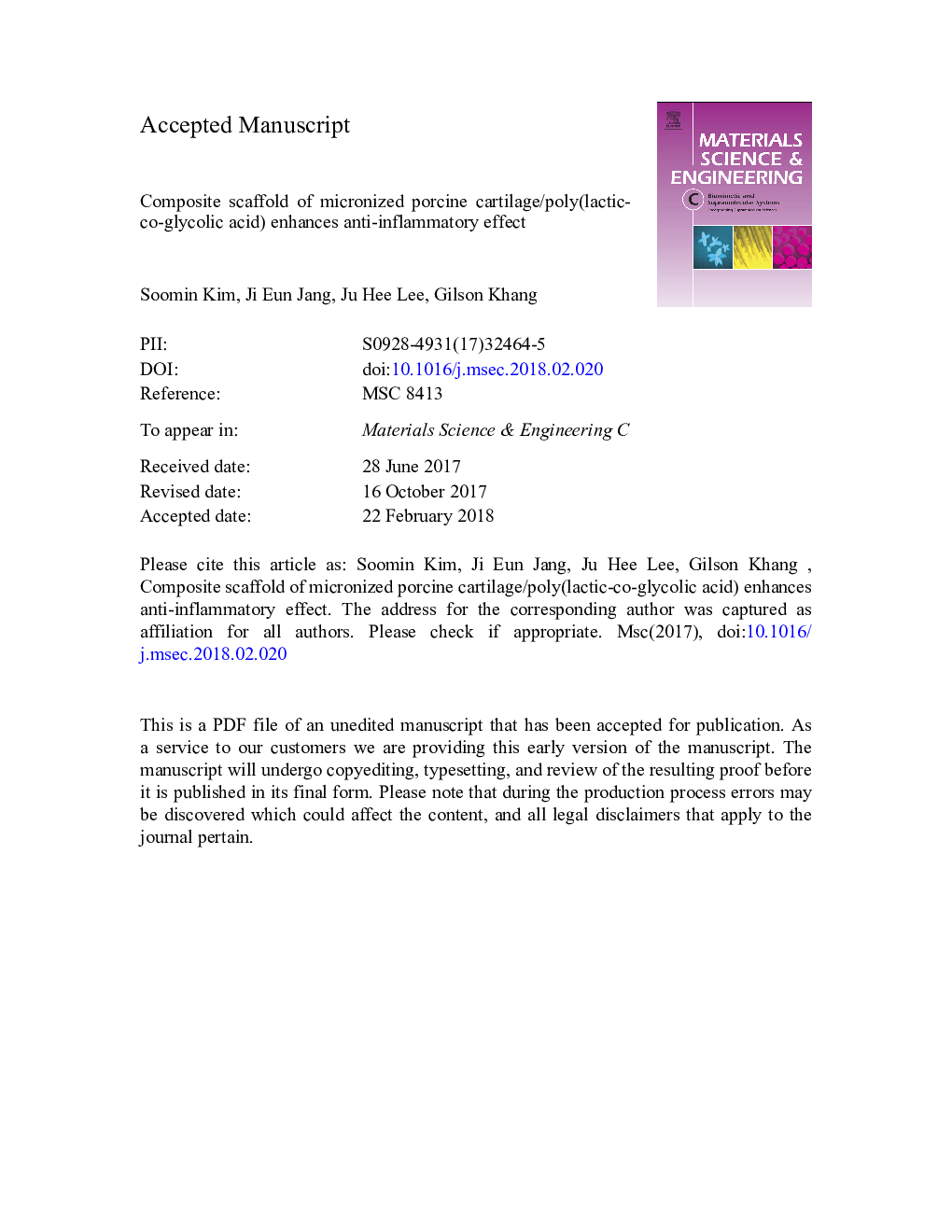| Article ID | Journal | Published Year | Pages | File Type |
|---|---|---|---|---|
| 7866344 | Materials Science and Engineering: C | 2018 | 28 Pages |
Abstract
The main disadvantage of using poly(lacticâcoâglycolic acid) (PLGA), a typical synthetic polymer, as a biomaterial is that it induces inflammation. To overcome this disadvantage, we determined the ability of micronized porcine cartilage (MPC) for alleviating the inflammatory effects of a PLGA scaffold. MPC was analyzed by sodium dodecyl sulfateâpolyacrylamide gel electrophoresis and Fourier transform-infrared spectroscopy, and typical collagen components were confirmed. The MPC/PLGA scaffolds were fabricated using various concentrations of MPC and the compressive strength was evaluated to characterize its physical properties. Although the compressive strength decreased with increasing amounts of MPC, the roughness of the surface, assessed by scanning election microscopy, was considered to be suitable for facilitating cell attachment. Notably, in vitro experiments showed that the cell adhesion and proliferation rates increased as the MPC content increased. MPC further reduced gene expression levels of inflammatory cytokines and cellular reactive oxygen species, as determined by real time-polymerase chain reaction and fluorescence-activated cell sorting, respectively. In addition, in vivo experiments confirmed the interaction between tissues and the scaffolds. Overall, these results confirmed that the MPC/PLGA scaffold is superior to the PLGA scaffold in many respects and might be a suitable candidate for resolving the disadvantages of PLGA in tissue engineering applications.
Keywords
Related Topics
Physical Sciences and Engineering
Materials Science
Biomaterials
Authors
Soomin Kim, Ji Eun Jang, Ju Hee Lee, Gilson Khang,
